Our journeys take you deep into the heart of East Africa, where every destination tells its own story. From Uganda’s wild north to Kenya’s sweeping savannahs, the national parks and reserves we explore are more than places on a map — they are living landscapes shaped by wildlife, culture and tradition.
With Ebonjalo you will discover Uganda and Kenya safari destinations that reflect the diversity of East Africa. Murchison Falls thunders with raw energy, while Kidepo Valley offers endless horizons. In Kenya, the Masai Mara stages the Great Migration, while Samburu reveals rare wildlife found nowhere else. And beyond the bush, the Indian Ocean awaits — white sands and Swahili culture, a calm contrast to days of adventure.
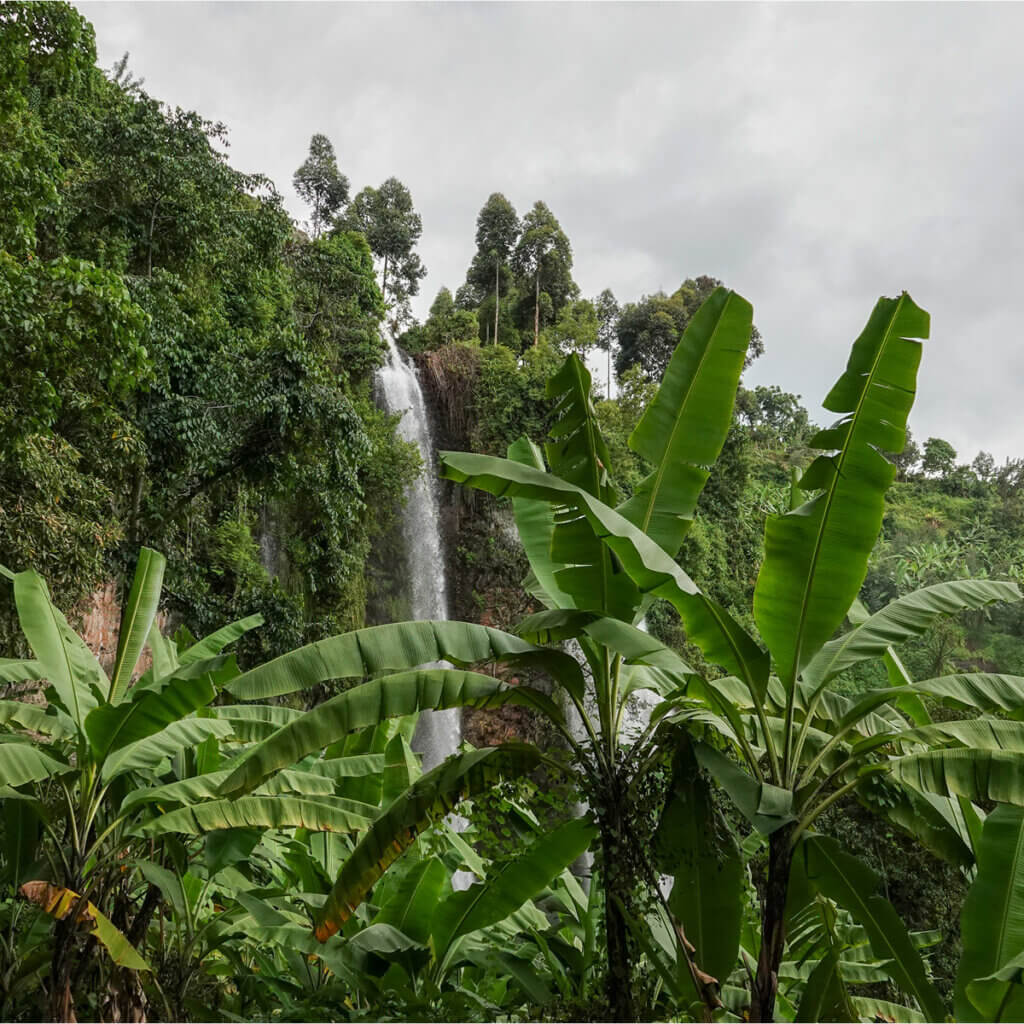
High on the slopes of Mount Elgon, Sipi Falls is a place of cool air, green hills and thundering water. Three waterfalls tumble dramatically down cliffs, feeding lush valleys below. Trails wind through coffee plantations and villages, with viewpoints that open to sweeping panoramas. The rhythm of the falls sets the tone — powerful, calming and unforgettable.
Sipi is more than scenery. Local guides share stories of the land, showing hidden caves, river pools and cultural traditions. Hikers can trek to each fall, while those seeking peace can sit quietly and let the spray wash over them. At sunrise, the cliffs glow with colour, and by night, the skies fill with stars. Sipi is nature, adventure and culture flowing together.
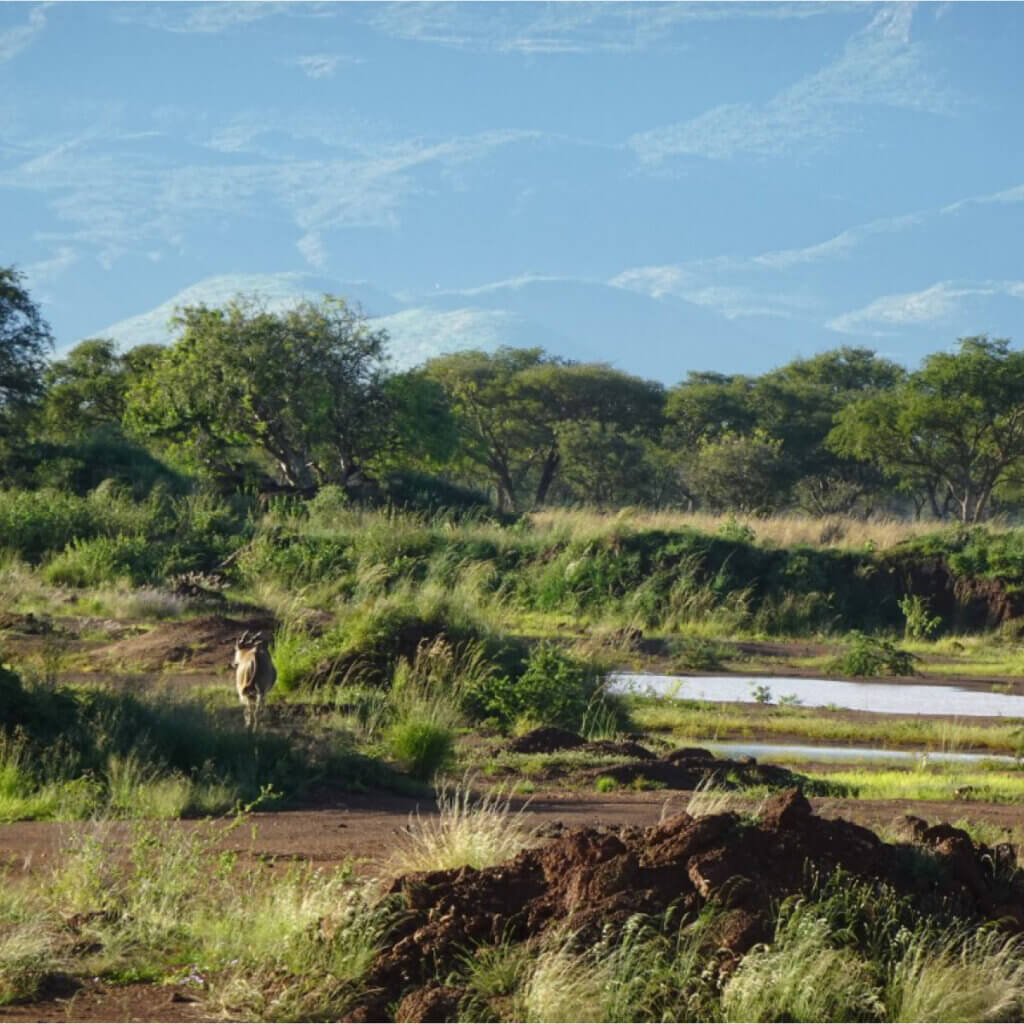
Pian Upe is one of Uganda’s wildest frontiers, a vast expanse of golden grasslands and rugged hills where time seems to stand still. Few travellers venture here, which makes every sighting of hartebeest, ostrich or cheetah feel deeply personal. The reserve is alive with silence, broken only by the calls of birds or the rustle of antelopes moving across the plains. This untouched wilderness captures the raw spirit of East Africa.
Beyond the wildlife, Pian Upe is about atmosphere: wide skies that shift with the light, rocky outcrops where baboons perch, and endless horizons stretching into Karamoja. Visiting here is not about ticking animals off a list, but about experiencing solitude in its purest form. For adventurers who crave authenticity, Pian Upe offers something rare — a safari where you feel part of the land itself.
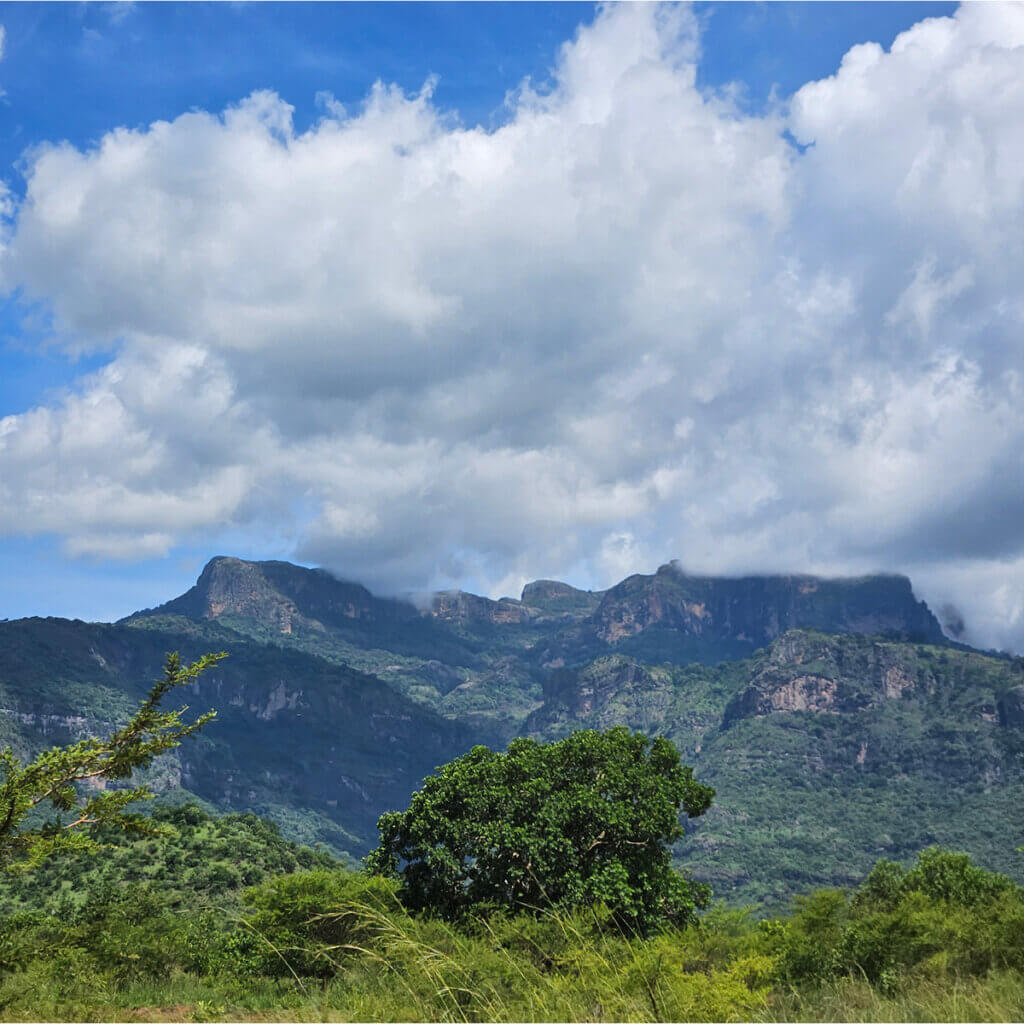
Rising in Uganda’s northeast, Mount Kadam is a rugged peak surrounded by wilderness and silence. Unlike Elgon or Rwenzori, it remains largely unknown, visited only by the most adventurous travellers. The trails are steep, the air pure, and the sense of remoteness profound. From its slopes, views stretch endlessly over Karamoja and into Kenya.
Climbing Kadam is not just a physical challenge but an immersion into landscapes untouched by tourism. Birdsong fills the forests, while small communities live in harmony with the mountain. For those who make the journey, Kadam offers solitude, beauty and the thrill of discovery. It is Uganda at its rawest — a mountain that waits quietly for those who dare.
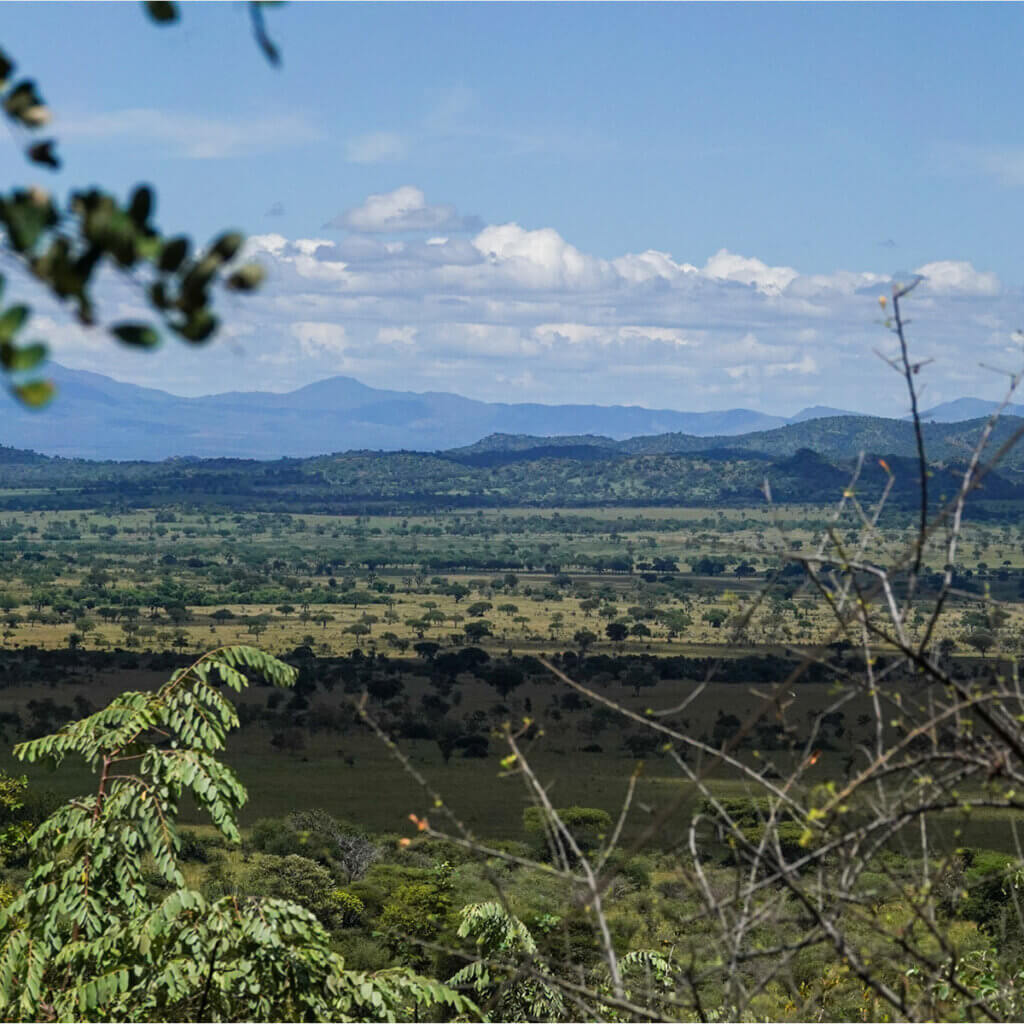
Far in the north, Kidepo Valley lies hidden between rugged mountains and endless savannahs. It is Uganda’s most remote national park, known for lions lounging on rocky outcrops and elephants moving across vast plains. The air feels untouched, and the landscapes glow with changing colours as the sun rises and sets. Kidepo is often called Uganda’s most beautiful park — and those who make the journey quickly see why.
Game drives reveal buffalo herds that stretch to the horizon, cheetahs chasing across open ground and giraffes silhouetted against mountain ridges. The Narus Valley teems with life, while the Kidepo River cuts through dry, dramatic terrain. Culture is also part of the story here, as the Karamojong people keep age-old traditions alive nearby. Kidepo is wilderness, wildlife and heritage woven together.
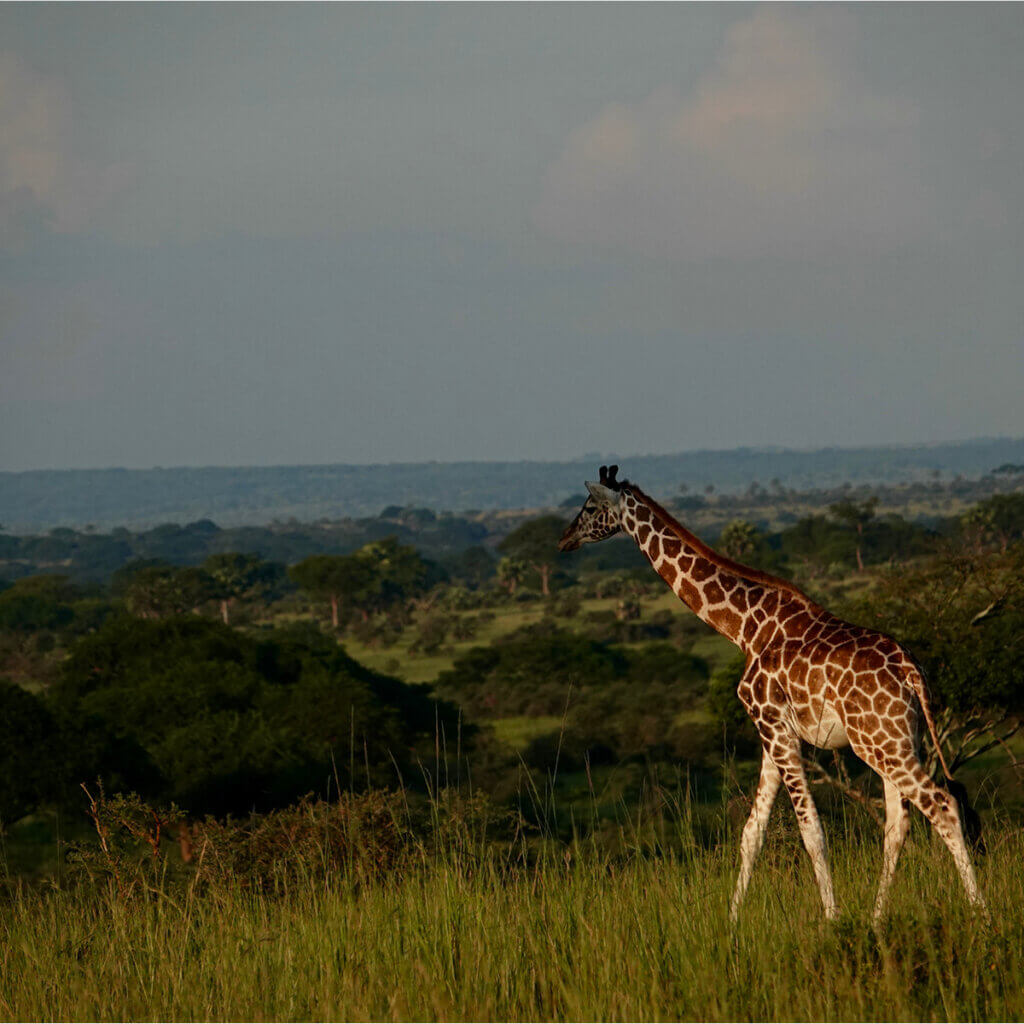
Murchison Falls is Uganda’s most spectacular park, defined by the moment the Nile crashes through a narrow gorge before tumbling into a wide river below. Rainbows form in the spray, while hippos and crocodiles fill the waters at its base. Beyond the falls, savannah and woodland stretch out, alive with giraffes, elephants and antelope. The blend of river and plains makes Murchison one of Uganda’s most diverse landscapes.
A boat cruise brings you close to the roaring falls, while game drives reveal lions resting in the grass, leopards in the shade and countless birds in the trees. The elusive shoebill stork is often spotted here, adding to the park’s uniqueness. Murchison is more than a safari — it is a meeting point of water, wildlife and wonder, where every moment feels charged with energy.
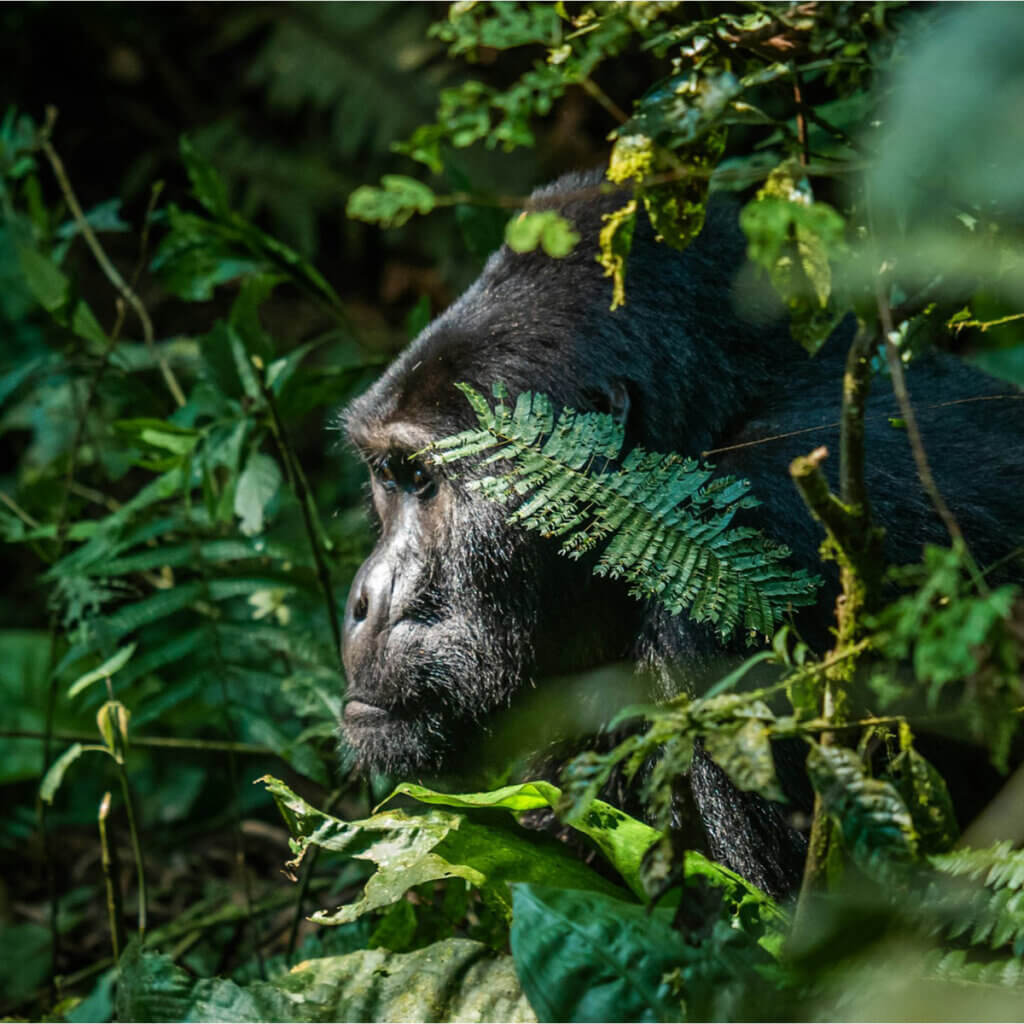
Bwindi is a place of legends, a rainforest so dense that sunlight barely touches the ground. Within this ancient forest lives more than half of the world’s last remaining mountain gorillas, a fact that makes every trek here extraordinary. Narrow trails lead you through green tunnels alive with birdsongs, butterflies and whispers of unseen creatures. Entering Bwindi feels like stepping into another world, mysterious and alive.
Meeting a gorilla face to face is one of the most moving encounters in Africa — their gaze feels human, their presence overwhelming. Yet Bwindi is more than gorillas: it shelters monkeys, forest elephants and over 350 species of birds. Communities around the park also share their culture, showing how people and wilderness coexist. Bwindi is both wild and human, fragile and powerful, a place that changes the way you see nature.

Ziwa Rhino Sanctuary is the only place in Uganda where rhinos roam once more. Guided treks on foot bring you within metres of these prehistoric giants, giving a perspective that a vehicle never can. Every step is a lesson in conservation, as rangers share the story of how rhinos are being reintroduced and protected. It is a rare chance to be part of a living success story.
The sanctuary is more than rhinos: wetlands shelter countless birds, and antelope move quietly through the grasslands. Visitors leave not only with photographs but with understanding — that protecting wildlife takes patience, community and care. Ziwa proves that tourism and conservation can thrive together, offering hope for Uganda’s natural heritage.
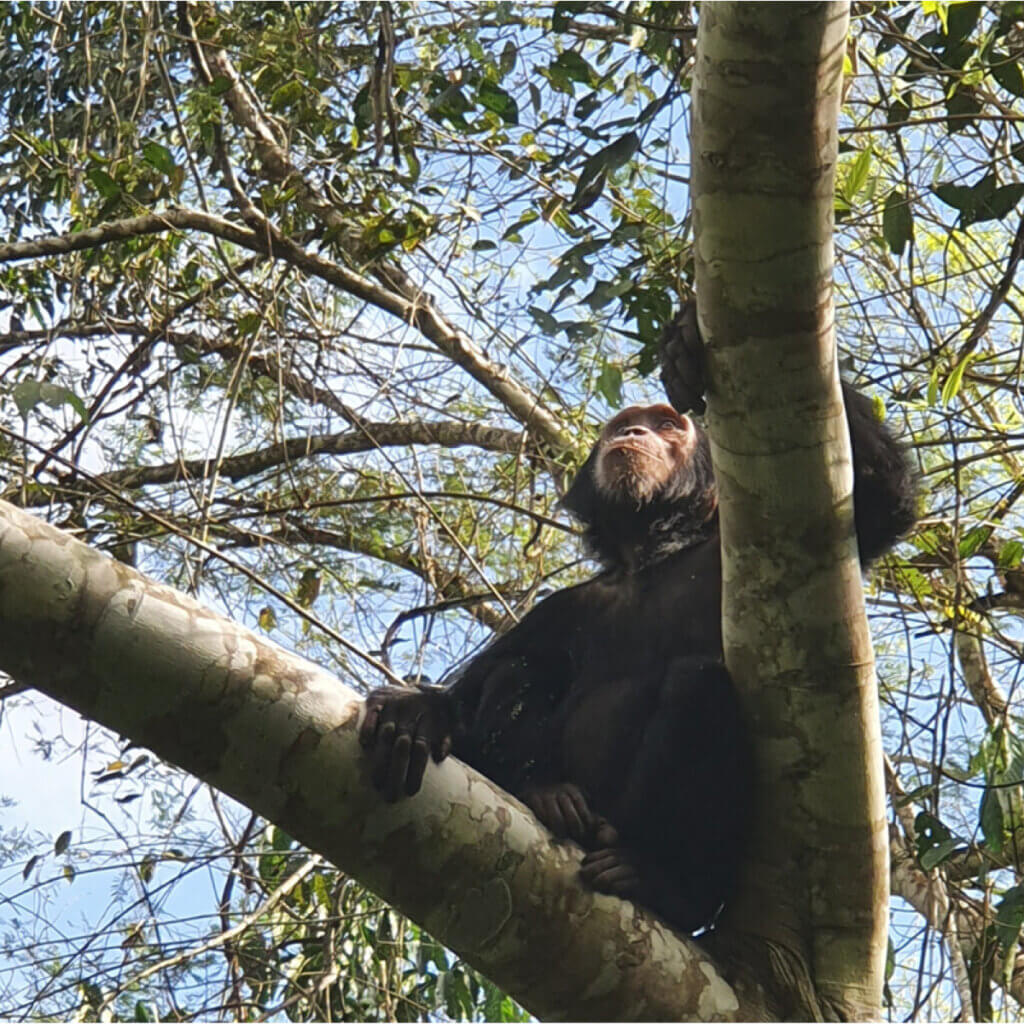
Budongo is a rainforest where tall mahogany trees rise into the sky and the air hums with life. It is best known for its chimpanzees, whose calls echo through the canopy as you trek narrow forest paths. Watching them swing, feed and interact is a reminder of how close we are to our primate cousins. The experience is both scientific and deeply emotional.
But Budongo is more than chimps: monkeys leap between branches, butterflies shimmer in shafts of light and birdsong fills the air. This is a forest where every corner feels alive, delicate yet resilient. To walk here is to glimpse the complexity of the rainforest and to feel part of a world that is at once familiar and wild.
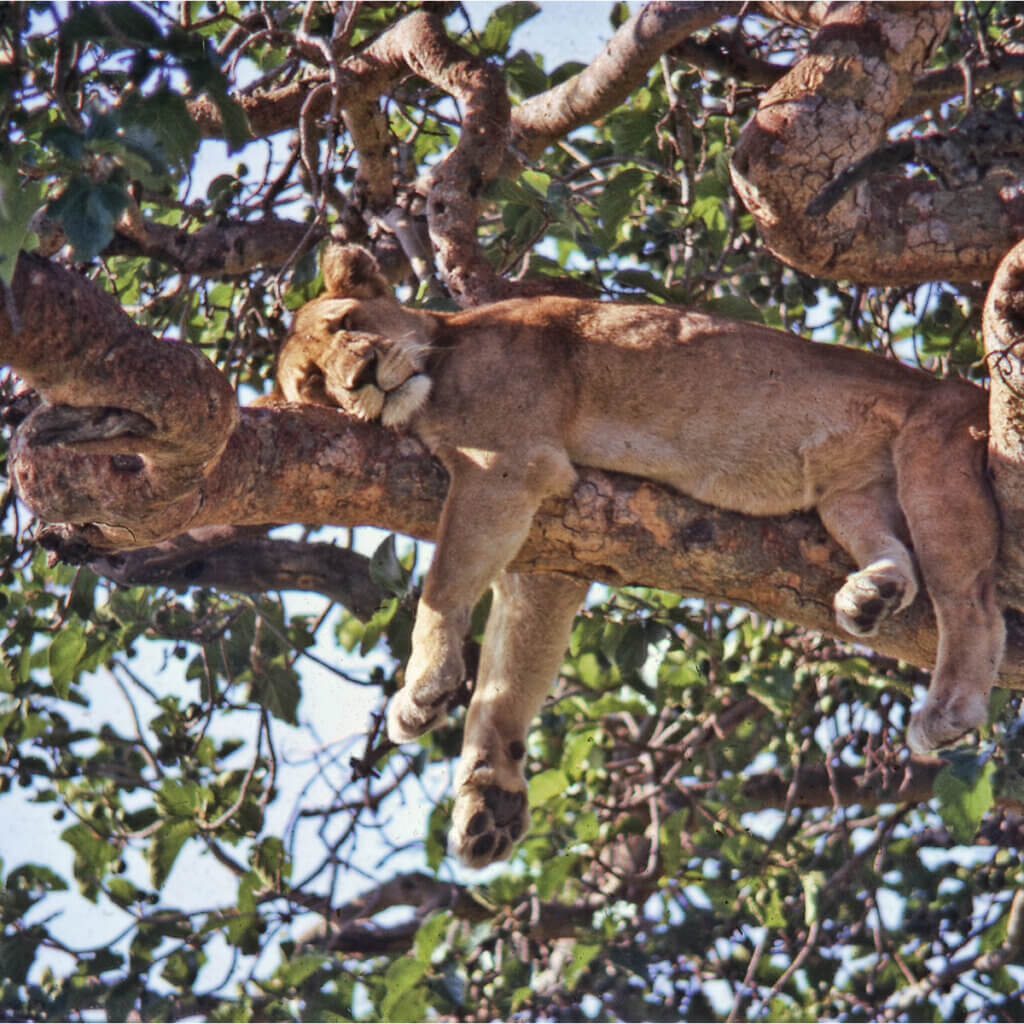
Queen Elizabeth is Uganda’s most diverse park, stretching from open savannah to crater lakes and wetlands. Lions climb trees here, while hippos crowd the Kazinga Channel and elephants wander across the plains. The variety of habitats makes it one of the best places to see a wide mix of wildlife in one journey. Every corner brings a new landscape and a new surprise.
Boat cruises along the channel reveal buffalo drinking at the water’s edge and fish eagles circling overhead. Game drives cross volcanic craters, open grasslands and tangled bush. With more than 600 bird species, it is a paradise for birdwatchers too. Queen Elizabeth is a park of contrasts — dramatic, abundant and endlessly alive.
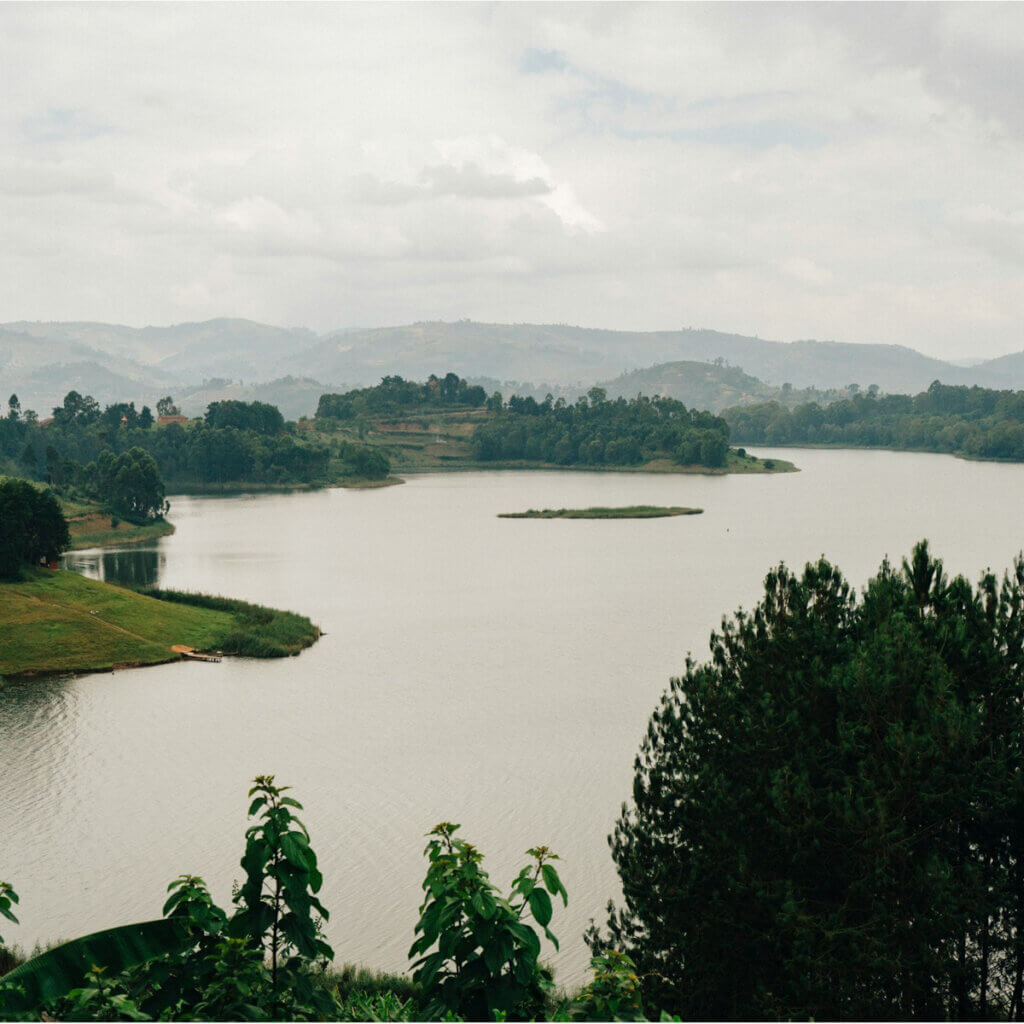
Lake Bunyonyi is a place of peace, ringed by green hills and dotted with small islands, each carrying a story. Its waters are safe to swim, a rarity in Africa, and travellers often end safaris here to rest and reflect. Canoes glide silently across the lake, and mornings rise with mist lifting off the water. Bunyonyi feels like a gentle pause in an otherwise wild journey.
But the lake is not only for relaxation: hiking trails wind through surrounding villages, birds fill the air with song, and island visits reveal local history and traditions. Sunset paints the hills in gold, and nights bring a sky full of stars. Lake Bunyonyi is both a retreat and a discovery, a place where culture and calm come together.

The Masai Mara is one of the most iconic Kenya safari destination, where endless grasslands stretch toward the horizon. It is here that the Great Migration takes place, with wildebeest and zebras crossing rivers in their millions while lions and crocodiles wait in ambush. Every sunrise feels timeless, painting the savannah gold as herds move in the distance. The Mara is safari at its most dramatic.
Yet the Masai Mara is more than migration. Leopards rest in acacia trees, cheetahs sprint across open plains, and elephants gather in family groups. Maasai communities nearby share traditions and stories that add cultural depth to the landscape. With wildlife density unmatched in Africa, the Mara offers both spectacle and intimacy — a place where nature’s rhythm is always on display.
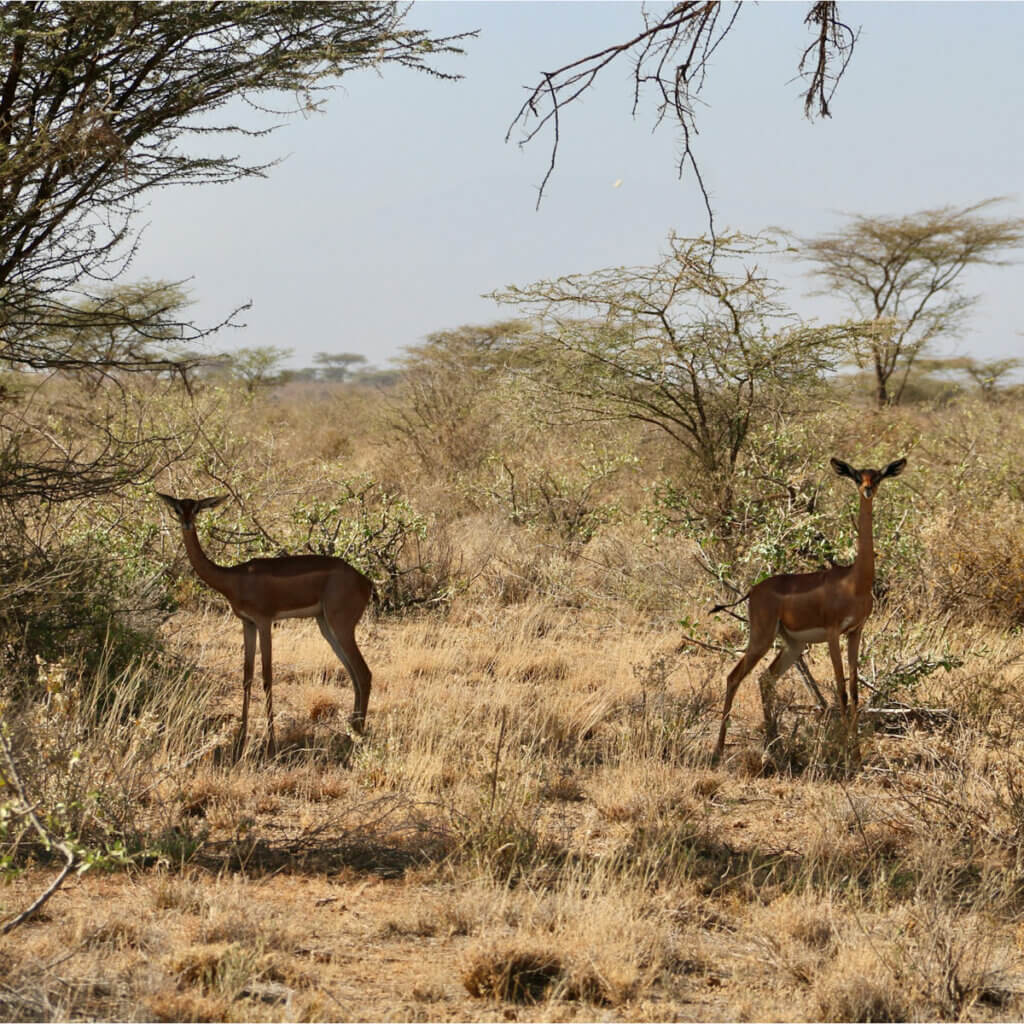
Samburu lies in Kenya’s north, a land of arid hills, thorn trees and the life-giving Ewaso Nyiro River. It is famous for the Samburu Special Five: reticulated giraffe, Grevy’s zebra, beisa oryx, Somali ostrich and gerenuk — animals found almost nowhere else. The landscape feels harsh yet striking, with mountains rising in the distance and colours that shift with the light.
Game drives bring encounters with elephants gathering at the river, lions stalking the plains and leopards hiding in rocky outcrops. Beyond the wildlife, Samburu is also about people: the Samburu community, close kin of the Maasai, keep vibrant traditions alive through dance, dress and herding. A journey here is both cultural and wild — an immersion into Kenya’s untamed north.
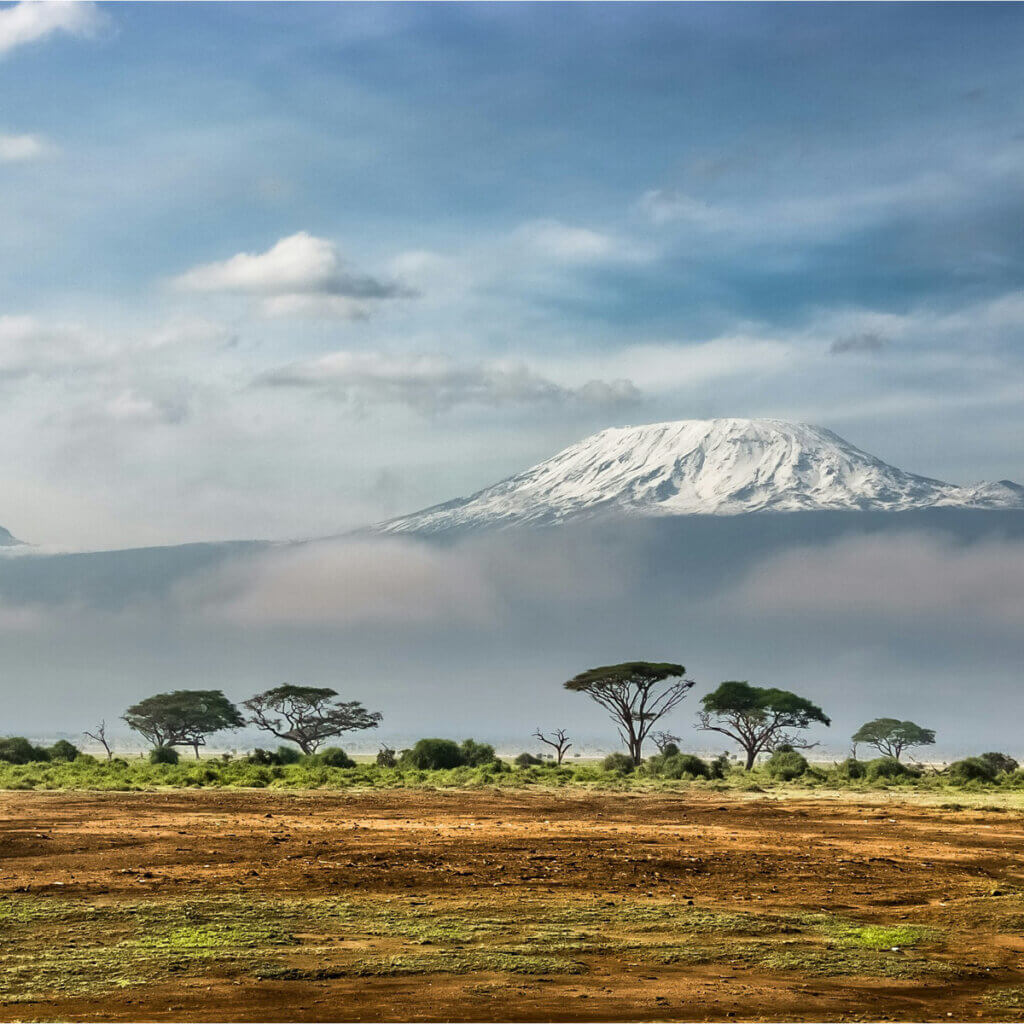
Amboseli is world-renowned for its elephants, who roam in great herds against the backdrop of Mount Kilimanjaro. The sight of tuskers silhouetted against Africa’s highest peak is one of the most iconic safari images. Marshes and plains provide a rich mosaic of habitats, attracting buffalo, wildebeest and countless birds. Amboseli is dramatic, photogenic and deeply moving.
Predators are never far away, with lions and cheetahs following the herds. The park is also a haven for birdlife, from pelicans in its lakes to eagles soaring high above. What sets Amboseli apart is not just its wildlife, but the sheer spectacle of scale — elephants and mountains together in one frame. It is a place where nature feels grand and unforgettable.
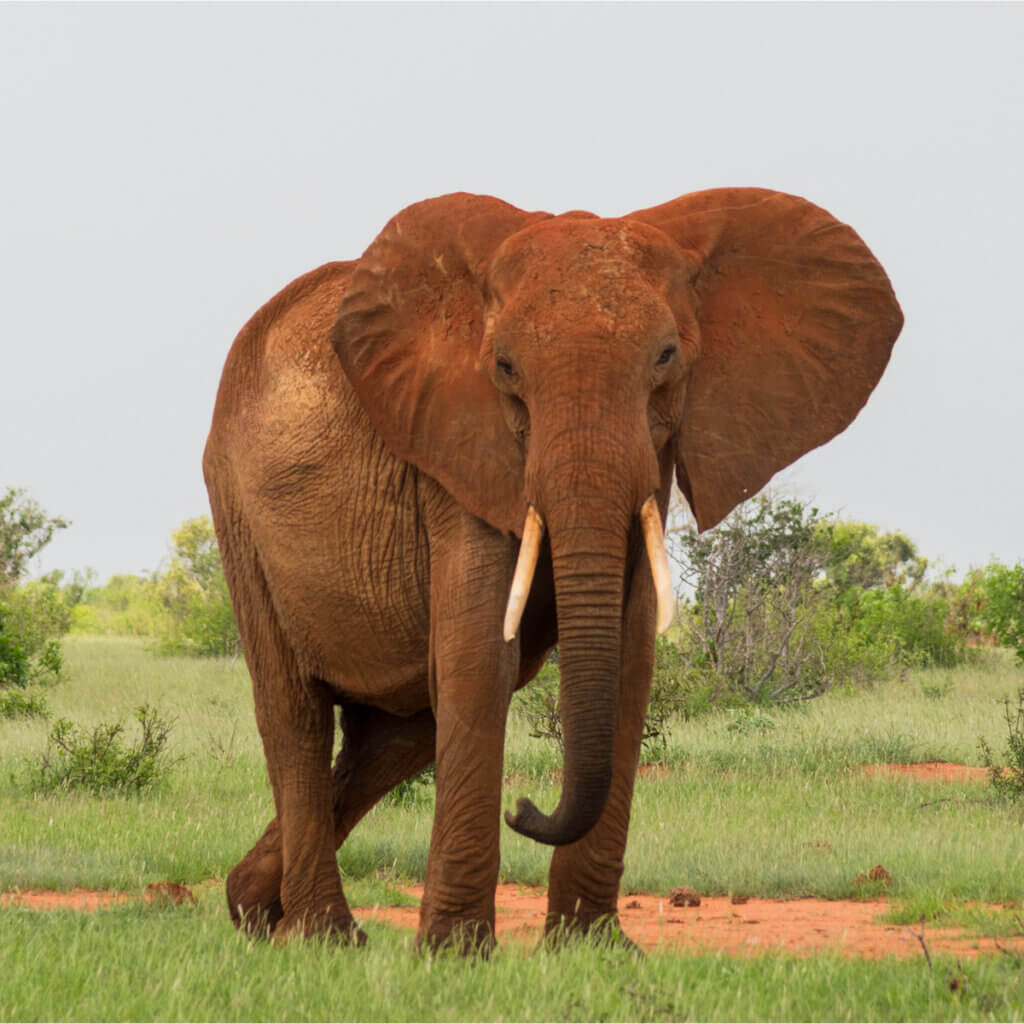
Tsavo East and West together form Kenya’s largest protected wilderness, covering vast plains, volcanic hills and river systems. It is a land known for elephants dusted red by the earth, who roam in herds across the landscape. Tsavo is rugged and dramatic, a place where wilderness feels boundless. Few parks in Africa capture scale quite like this.
Wildlife here is diverse: lions, leopards, giraffes, hippos and crocodiles thrive alongside a wealth of bird species. The Chyulu Hills and Mzima Springs bring striking variety, with green oases breaking the arid land. Tsavo is less crowded than Kenya’s more famous parks, offering a safari that feels adventurous and raw. It is a destination for travellers who seek the vastness of Africa untamed.

Ol Pejeta is one of Kenya’s most inspiring safari destinations, combining wildlife viewing with groundbreaking conservation. It is home to the largest population of black rhinos in East Africa, as well as the last two northern white rhinos on Earth. The conservancy also shelters chimps rescued from the illegal pet trade, alongside lions, elephants and wild dogs.
Visitors to Ol Pejeta witness not only wildlife, but also the urgent work of protecting it. Rangers and researchers share the challenges of conservation, showing how tourism supports the future of endangered species. It is a place where every game drive carries meaning — where safari is not just about seeing, but about sustaining.

Lake Nakuru is famous for the pink glow of flamingos that once gathered in their millions. Though numbers shift, the lake remains one of East Africa’s most colourful landscapes, surrounded by acacia forests and rocky cliffs. Its compact size means wildlife encounters come quickly, with rhinos grazing near the water and giraffes moving gracefully across the hills.
Beyond the birds and rhinos, lions and leopards also patrol the park, making it a complete safari destination in miniature. The lake reflects changing skies, from bright mornings to golden evenings. For photographers and travellers alike, Nakuru is a park where beauty and biodiversity meet in harmony.
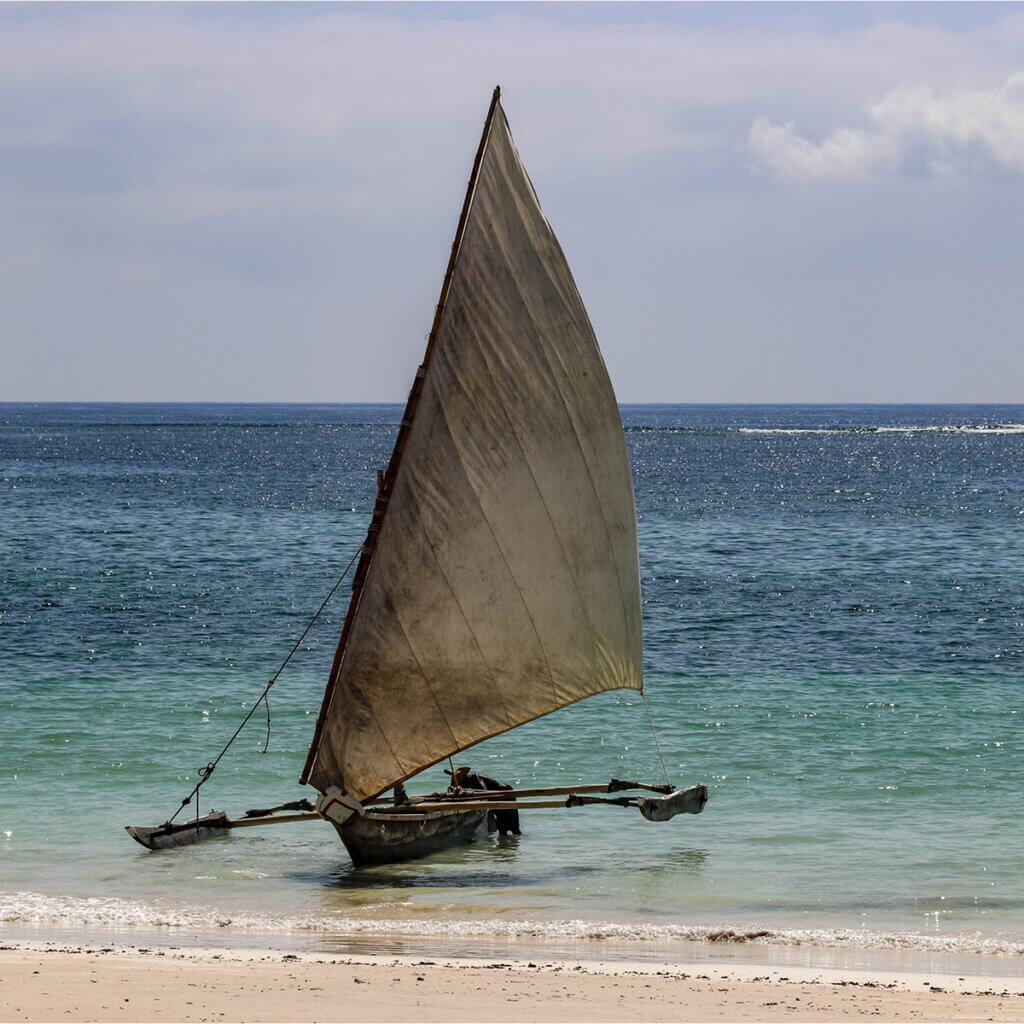
After days on safari, the Indian Ocean offers a softer side of East Africa. Diani Beach is a stretch of white sand and turquoise water, lined with palms that sway in the breeze. It is a place to swim, snorkel or simply rest while the waves roll in. The air carries the scent of spices and the rhythm of coastal life — a calm contrast to the roar of lions and elephants.
Yet the Swahili Coast is more than beaches. Towns like Lamu tell stories of centuries-old trade, carved doors and winding alleys filled with history. Local fishermen bring in their catch at dawn, and dhows sail out at sunset. Here, culture and coast come together, creating an experience that feels timeless. The Indian Ocean is not just an ending to safari — it is a destination in its own right.
Our Uganda and Kenya safari destinations are more than stops on an itinerary — they are gateways into the soul of East Africa. From rhinos at Ziwa to the thunder of Murchison Falls, from the golden savannahs of the Masai Mara to the cultural encounters in Samburu, each destination reveals a different side of the region.
Travelling with Ebonjalo means seeing wildlife, yes, but also experiencing the rhythm of daily life: children dancing in a village, fishermen on Lake Victoria, the calm of the Indian Ocean after days on safari. These contrasts — wild and serene, rugged and refined — are what make East Africa unforgettable.
Every journey we design is rooted in authenticity and respect for the places we visit. By joining us, you don’t just see destinations — you become part of their story.
East Africa’s beauty lies in its diversity — from Uganda’s vast savannahs to Kenya’s famous game reserves. Each destination tells its own story of wildlife, landscapes and culture. If you’d like to explore the full list of protected areas, the Uganda Wildlife Authority and the Kenya Wildlife Service provide detailed overviews of their national parks and reserves.
By combining our itineraries with their resources, you gain a broader picture of what makes this region so unique — and why these landscapes deserve both exploration and protection.